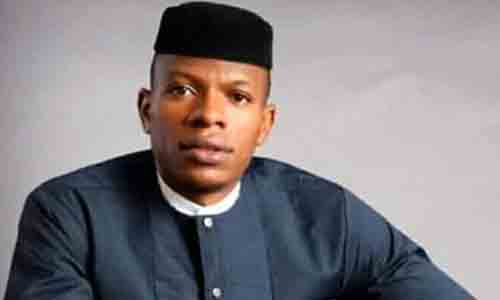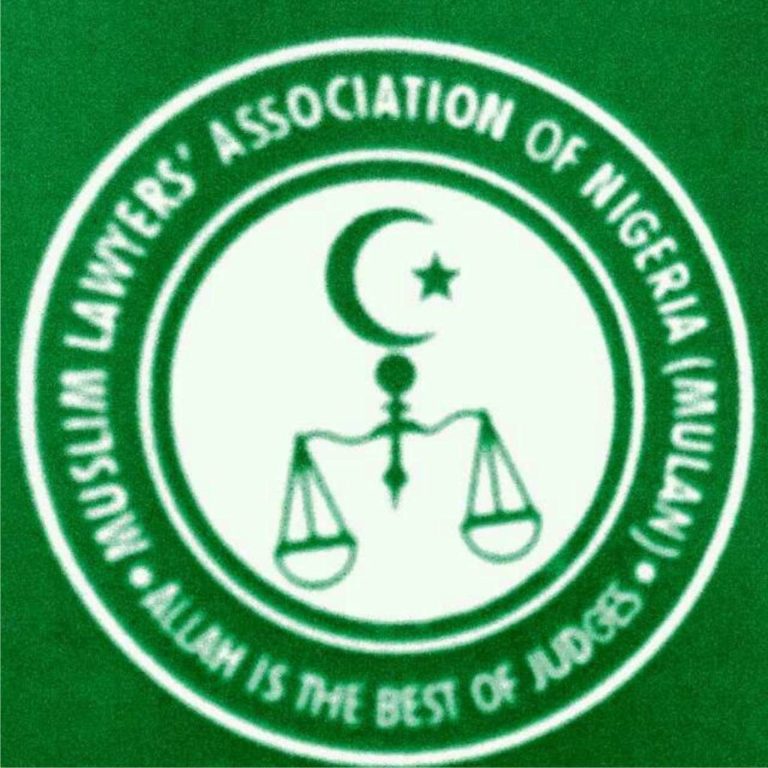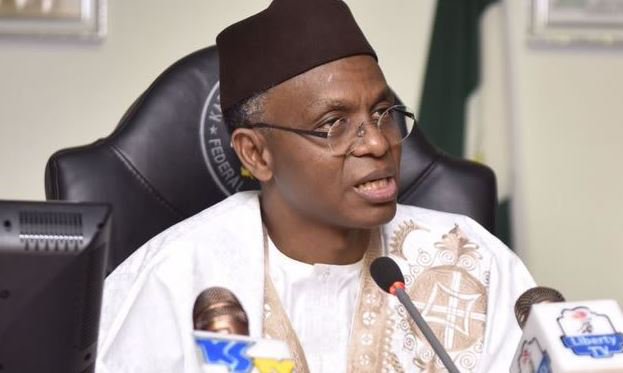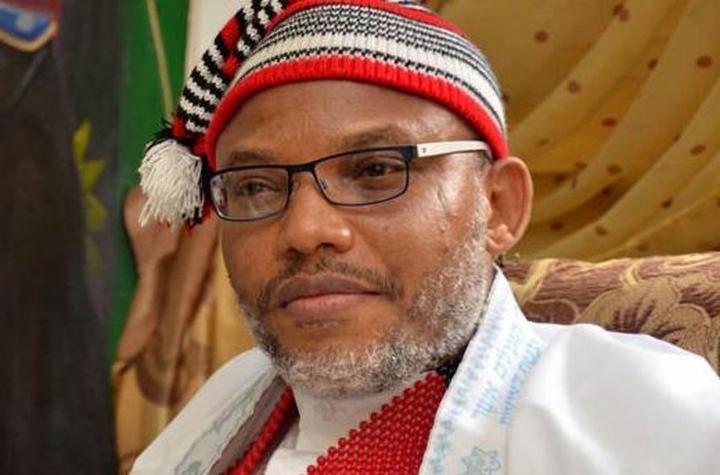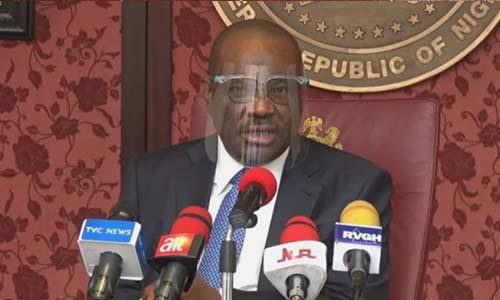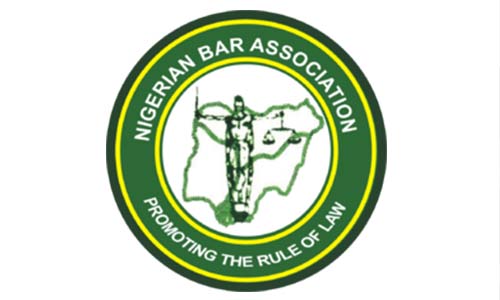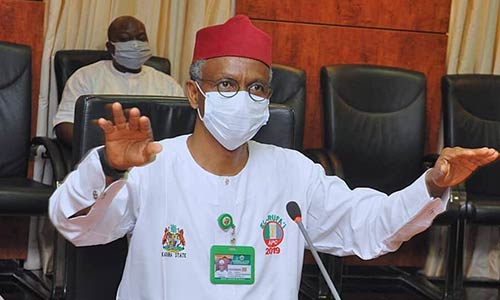By Raymond Nkannebe
INTRODUCTION
The dawn of the 4th Alteration Act, No. 21 of 2017 which came into force on 8th June, 2018 might have wrought a further paradigm shift in the role play of the Independent National Electoral Commission (INEC) in the conduct and management of elections, particularly in regards to its powers to disqualify candidates of political parties from contesting an election.
Whereas the Commission had always exercised this power, the ugly events that gave birth to the landmark decision of the Supreme Court in the case of Amaechi v INEC, particularly INEC’s complicity, led the 6th National Assembly to amend the then 2006 Electoral Act introducing a number of amendments one of which took away the wide powers of the Commission to disqualify candidates and donated same to the Courts. By the proviso to the extant 2010 Act (as emended), the “Commission shall not reject or disqualify candidates(s) for any reason whatsoever”.
However, with the coming into force of the 4th Alteration Act, that power seems to have been restored by the legislature. But this time, in the Constitution. By dint of section 285(14)(c) of the Constitution it’d appear the Commission may now have the power to exclude and/or disqualify a candidate, by the sheer force of circumscribing such administrative decision within the scope of actions that could transmute into a pre-election matter.
The provision provides:
“(14) For the purpose of this section, “pre-election” matter means any suit by-
(a)……………………
(b)…………………..
(c) a political party challenging the actions, decisions or activities of the Independent National Electoral Commission disqualifying its candidate from participating in an election or a complaint that the provisions of the Electoral Act or any other applicable law has not been complied with by the Independent National Electoral Commission in respect of the nomination of candidates of political parties for an election, timetable for an election, registration of voters and other activities of the Commission in respect of preparation for an election”.
[underlining for emphasis]With the above provision, which was written into the Constitution for the first time in 2018, one may argue with some force that the delineation of a suit challenging INEC’s disqualification of a candidate as a pre-election matter, has restored the Commission’s power so to do, by way of incorporation by reference; an accepted canon of interpretation. However, this territory remains largely uncharted as far as our electoral jurisprudence goes.
The situation however reared its head recently in the Bayelsa State Governorship Election Petition Tribunal which rendered its decision last Monday, nullifying the Nov. 16th 2019 Governorship Election held in the State, in a split decision, and ordering a re-run poll in 90 days barring any right of appeal that may be exercised by the aggrieved party.
There, one of the core issues that agitated the minds of the 3-man panel was whether the decision of INEC disqualifying the candidates of the Advanced Nigeria Democratic Party (ANDP) (“the Petitioner”), for purportedly submitting the name of an unqualified candidate was ultra vires its powers. And if answered in the negative, whether it did not take the Petitioner’s case outside the realm of a post-election matter?
FACTS OF THE CASE
It is sufficient for the purposes of this discourse, to state the brief facts of the quite interesting case.
By its Amended Time Table of Activities for the Governorship Election in Kogi and Bayelsa States, INEC fixed September 9th 2019, as the deadline for the submission of list of nominated candidates and their statutory Forms CF 001 and CF002. While other political parties submitted their respective forms in good time, the Petitioner was only able to do so on the last day of submission. By the time it did, its candidate for the office of Deputy–Governor, David Peter Esinkuma as it turned out, was under-aged not having attained the constitutionally nominated age of 35.
By its letter dated, 13th September, 2019 INEC wrote to the Petitioner informing it of this finding. Having been apprised of this development, the Petitioner wrote back to INEC on 21st September, 2019 substituting the nominee, with one Miss Inowei Janet. As though the Petitioner-Political Party were jinxed, this second nominee turned out to be also under aged. But that was a secondary matter, as INEC in its letter of 27th September, 2019 informed the Petitioner that it was too late in the day to submit a fresh nominee having not submitted a qualified candidate before the deadline of 9th September. It also informed the Petitioner that her name and logo would not be on the ballot at the scheduled elections. The die was cast. The Petitioner wrote back a week later, precisely on the 3rd of October, urging INEC to rescind its decision, and threatening legal action. INEC would not budge. Long story short, the elections held without the Petitioner being on the ballot.
Aggrieved, it filed a Petition at the Bayelsa State Governorship Election Petition tribunal. That petition would subsequently be withdrawn. Following the declaration and return, by INEC of Duoye Diri of the PDP as the winner of the election, in compliance with the orders of the Supreme Court on 13th February, 2020 the Petitioner filed a fresh petition on 26th February, 2020 seeking amongst other reliefs an order that the election of Nov.16th 2019 be declared null and void, having been “unlawfully excluded” from the Petition. It is that petition that germinated into the decision which I had highlighted above.
THE TRIBUNAL’S DECISION
While the majority decision held that INEC had no power whatsoever to disqualify a candidate relying on the provisions of section 31(1) of the Electoral Act, 2010 (as amended), the minority/dissenting judgment anchored on the provisions of section 285(14) (C) of the Constitution to hold that the disqualification of the Petitioner by INEC was lawful, the Petitioner having not submitted a Deputy-Governor nominee who met the Constitutional age requirement per section 177 and 187(1) of the Constitution. With the implication that the 4th Alteration Act abrogated the proviso to section 31(1) of the Electoral Act which prohibits INEC from disqualifying a candidate for any reason whatsoever.
With no intention to critique the Tribunal’s decision which is expectedly on its way in the appellate process, the primary concern of this academic inquest is to interrogate the limits of the powers of INEC to disqualify a candidate under the Electoral Act, and to ascertain whether the 4th Alteration Act has rendered the proviso to section 31(1) of the Electoral Act, otiose.
PRE 4TH ALTERATION ACT ELECTORAL REGIME
Matters came to a head in Action Congress v. INEC (2007) 12 NWLR (Pt. 1048) 222. There, the candidate of the defunct Appellant-Political Party despite having been nominated for the office of the president of the Federal Republic of Nigeria for the 2007 general election, was disqualified by INEC on the ground that he was not qualified by virtue of section 137(i) of the 1999 Constitution (as amended). Agreeing with the earlier judgments of the trial Federal High Court and the Court of Appeal, the Supreme Court put it beyond the realm of doubt that the Commission did not have such powers at page 265 paras.B-H of the report thus:
“Now, there is no doubt that Section 137(1)(i) of the 1999 Constitution is a provision disqualifying any candidate to contest for the seat of the President of the Federal Republic of Nigeria. As a matter of fact, the entire Section 137 deals with the situations in which a person is disqualified to contest for the post of the President. While Section 131 deals with the situation when a person may be deemed to be qualified to contest for the post of the president in an election, the fundamental question is whether the respondent has the authority and the competence to determine whether a candidate is caught by the provisions of Section 137(1) specifically in this case Sub-section (1)(i) whether on the facts, the respondent can pronounce on the qualification of the 2nd appellant on its own steam.
To put it another way, whether the provisions of Sections 137(1)(i) are self-executing and can be determined by the respondent. In my view, it is now trite that a principle of interpretation of the Constitution or statute is that a provision should not be interpreted in isolation but rather in the context of the Constitution or the statute as a whole. See Awolowo v. Shagari (1979) 6-9 SC 51; Bronik Motors v. Wema Bank (1983) 1 SCNLR 296; and the recent case of Buhari & Anor v. Obasanjo & Ors. (2005) 13 NWLR (Pt. 941) 1 at 219. The subsection must be read in the context of constitutional democracy established for the country by the Constitution. It is very clear that the power to disqualify a candidate is not conferred on the respondent by Section 137 of the Constitution and I have searched the Constitution, I cannot find in any other provision where such a power has been conferred either expressly or by necessary implication on the respondent to disqualify any candidate”.
Later, in Amaechi v. INEC & 2 Ors (2008) 1 S.C. (Part 1) 36 @ 275 lines 5-15, the apex Court had reason to re-echo the principle thus:
“I should here also reiterate the limit of the powers of INEC as it relates to candidates for election while some duties are conferred on INEC per Section 32 (supra) it is obvious from the clear and unambiguous provisions of the aforesaid section of the Electoral Act, 2006, that the Commission lacks the power to disqualify any candidate on its own. The power of disqualification of any candidate from contesting an election after his name has been forwarded to the commission belongs exclusively to the Federal High Court or the State High Court. This court (Supreme Court) has reiterated this principle in a number of its decided cases.”
Now, the rationale behind this principle no doubt is to enhance the impartiality of the Commission and to underscore its role as an umpire who should not be seen to be conferring undue advantage to some political parties or their candidates. The Supreme Court stated as much in A-G Federation v. Abubakar (2007) 10 NWLR (PT.1041) PG 1 @ 183 – 184 PARA H—A where it held:
“Also the Independent National Electoral Commission (INEC) by its statutory existence is an independent body with constitutional powers to conduct elections in Nigeria. It must not only be an umpire, it must be seen in the eyes of reasonable men to be an impartial umpire in the conduct of an election. INEC must never by an act of omission or commission place itself in a position where imputations of partiality in favour of one party against another one will be levelled against it. Neutrality must be the watchword of the body-it must always remain fair and focused.”
[Underling for emphasis]This position has since crystallized in a long league of cases. In order to further instill confidence in the system and enable citizen participation in the electoral process, the draftsman of the 2010 Electoral Act, enacted sections 31(5) and (6) which gave members of the public the powers to challenge the qualification of candidates seeking elective offices, through the courts vide a pre-election suit.
The provision reads:
31(5) Any person who has reasonable grounds to believe that any information given by a candidate in the affidavit or any document submitted by that candidate is false, may file a suit at the Federal High Court, High Court of State or FCT against such person seeking a declaration that the information contained in the affidavit is false.
[Underlining mine]The affidavit referenced here, is the affidavit of facts usually sworn to by an aspirant saying that he/she has “fulfilled all the Constitutional requirements for election into that office” as mandated by section 31(2) of the Electoral Act. Section 31(6) of the Act, on the other hand, fixes the Courts with the responsibility of disqualifying a candidate who runs foul of section 31(2) of the Act. It says, “If the Court determines that any of the information contained in the affidavit or any document submitted by that candidate is false, the Court shall issue an order disqualifying the candidate from contesting the election”.
When the above sections are read in consonance with the proviso to section 31(1) of the Act which says, “…the Commission shall not reject or disqualify candidate(s) for any reason whatsoever” the irresistible conclusion is what the proviso says, namely: INEC cannot disqualify a candidate for any reason WHATSOEVER. [Emphasis supplied] And there has been a confluence of judicial opinion on the point, at least until the dawn of the 4th Alteration Act.
HAS THE LAW CHANGED UNDER THE 4TH ALTERATION ACT?
As I had alluded before now, by suggesting that INEC now has the powers to disqualify a candidate under section 285(14) (c) of the 1999 Constitution, and nominating a challenge to such decision a pre-election suit, the question that begs consideration is whether the 4th Alteration Act is in conflict with the provisions of section 31(1) of the Electoral Act so as to put it in limbo?
In the dissenting judgment of The Hon. Justice M. Sirajo of the Bayelsa State Governorship Tribunal, the learned jurist eloquently and quite convincingly argued in favor of a possible abrogation of the Electoral Act by the Constitution thus:
“The proviso to section 31 (1) of the Electoral Act clearly prohibits the Independent National Electoral Commission from rejecting or disqualifying any candidate submitted to it by a political party for whatever reason. The implication of this proviso is that even where it is apparent from the Form CF 001 that a candidate submitted to it by a political party for election in to the Office of Governor of a State is not a citizen of Nigeria; or he did not attain the age of 35 years; or he is not educated up to school certificate level; or he has been elected to such office at any two previous elections; or he is a lunatic; or he has been convicted for an offence involving dishonesty in the last ten years; or he has been found guilty of contravention of the code of conduct; or he is an undischarged bankrupt; or he is a civil servant who has not resigned his appointment; or he is a member of any secret society; or he has presented a forged certificate, the Independent National Electoral Commission cannot under any of these constitutional constraints reject his nomination. This scenario appears absurd and practically inapplicable. As a way out, the new subsection 14 (c) of section 285 of the Constitution was introduced by the Legislature. In defining what constitute pre-election matters, the Constitution restores, by necessary legal implication, the power of INEC to disqualify and exclude a candidate or a political party from an election. The section anticipates that INEC may decide to disqualify a candidate from participating in an election. By taking away the power of INEC to reject or disqualify candidates who did not satisfy the constitutional requirement for contesting such election, the proviso to section 31 (1) of the Electoral Act is on collision path with the provision of section 285 (14) (c) of the Constitution which recognises such power. That proviso must give way to the Constitution which is the Supreme law of the land, as it is void to the extent of its inconsistency with the provision of the Constitution. In the final analysis, I hold that the 1st Respondent has the power under the Constitution not only to prepare time table for election activities but also to reject and disqualify candidates who fail to satisfy the constitutional requirement for the office they are contesting”.
[Underlining mine]I am inclined to agree with the dissenting opinion of the learned trial Judge, and I do so advisedly knowing that a dissenting judgment however erudite lacks jurisprudential force. Yet, when considered against the backdrop of the innovations of the 4th Alteration Act, it could be inferred that the draftsman intended to donate such powers to the Commission by parity of reasoning. And the rationale may not be farfetched: to put the Commission in the same position as members of the public in scrutinizing aspirants for elective office and to ensure valid nomination of candidates. It would be absurd as posited by the learned trial Judge, for the electoral Commission to be faced with a clear case of non-qualification of a candidate submitted to it, only to wriggle its hands in helplessness purportedly handicapped by a legislation. This seems to me, the mischief now cured by the 4th Alteration Act. But that would abide a determination by the Supreme Court to finality.
In my considered opinion, this innovation does not in any way extinguish the provisions of sections 31(5) and (6) of the Electoral Act. If anything, it expands the scope to allow the Commission exercise powers of disqualification, particularly in cases where the disqualifying element are so glaring such as played out in the Bayelsa Governorship Petition where the Deputy-Governorship candidate of the Petitioner was clearly under the Constitutionally nominated age of 35, by the admission of the Party Chairman of the Petitioner. That is to say, members of the public are not estopped from taking the benefit of section 31(5) of the Act to challenge the qualification of aspirants in line with section 31(6) of the Act. This is to my mind, the only way, the fruits of the 4th Alteration Act could be reaped in that regard, otherwise an unscrupulous political party whose candidate is clearly not qualified under the Constitution, may avoid litigation (by whatever means) and field such a candidate on the ballot if the role of INEC in the process of screening candidates were merely mechanical.
CONCLUSION
Whether the 4th Alteration Act has unfettered the hands of INEC in disqualifying candidates submitted to it by Political Parties remains a grey area in our extant electoral jurisprudence. Be that as it may, the recent judgment of the Bayelsa State Governorship Election Petition Tribunal happily has helped to put it in issue and would one way or the other be determined by the Supreme Court. Assuming the apex Court resolves the logjam in favour of INEC, efforts must be made by the 9th National Assembly to codify the findings of the Court in the ongoing amendment of the Electoral Act towards resolving the seeming conflict between the 4th Alteration Act and section 31(1) of the Electoral Act 2020 (as amended). Such clarity is important for certainty and predictability of our electoral jurisprudence as we prepare for major elections in Ondo, Edo and Anambra States.
Raymond Nkannebe, a Legal Practitioner is of Synergy Attornies. He

